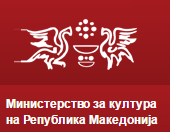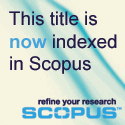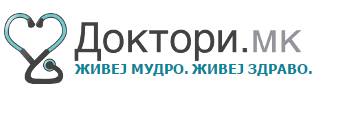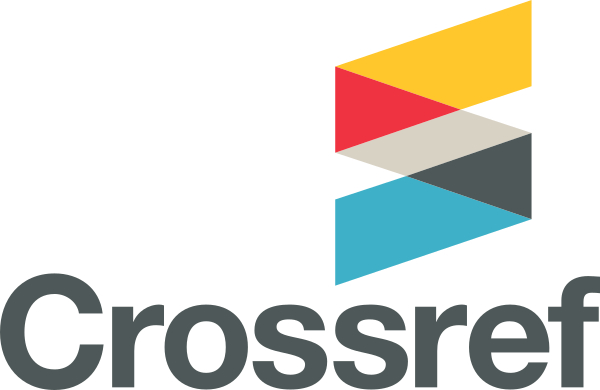|
Министерството за образование и наука ја достави на јавна расправа Националната програма за развој на образованието во РМ 2005-2015, изготвена од посебна експертска група.
Имајќи го предвид значењето на оваа програма чија цел е да се развие ефективен образовен систем, кој располага со механизми за подготовка на младите и возрасните за сите предизвици и промени со кои ќе се судрат со утрешнината, Националното координативно тело, формирано од Владата на РМ и Институтот за дефектологија при Филозофскиот факултет, заинтересирани за образованието на децата со развојни проблеми и посебни образовни потреби, како составен дел на Програмата, активно се вклучија во јавната расправа и притоа констатираа:
|
|
The Ministry of Education and Science opened a public debate on the National Program for development of education in the Republic of Macedonia 2005-2015, prepared by a special expert group.
Taking into consideration the importance of this program aimed to develop an effective education system with mechanisms to prepare both young people and adults for all challenges and changes they will face with in future, the National Coordinative Body, established by the Government of RM and the Institute for Special Education and Rehabilitation at the Faculty of Philosophy, interested in education of children with developmental problems and special education needs, which is a part of the Program, were actively included in the public debate and concluded:
|
-
Националната програма за развој на образованието, општо земено, претставува значаен документ за натамошниот развој на образованието во РМ особено со својата концепција, насоченост и рационалност со јасни и конкретни цели, задачи и визија, за успешно реализирање на содржаните идеи и вредности.
-
Во делот каде е опфатена проблематиката за образованието на децата со развојни проблеми и посебни образовни потреби, не се содржани соодветните системски решенија и ставови, изнесени во меѓународните и нашите национални документи за образование и рехабилитација на овие деца.
Имајќи го тоа предвид Националното координативно тело и Институтот за дефектологија при Филозофскиот факултет се одлучија на изготвувачот на Програмата да му достават амандман со изменет и дополнет текст на пасосот поместен во 8 ред во Програмата на крајот од страница 52 и на почетокот од страница 53.
Измените и дополнувањата на текстот се однесуваат на следниве прашања:
-
Во терминологијата со која се именувани овие деца, во Програмата е употребен термин "деца со посебни потреби", термин што не е јасен и тешко може да се дефинира. Заради тоа во амандманот се предложи новиот, веќе усвоен термин од домашни експерти (1) и кој е застапен во одделни меѓународни документи, а исто така и применет во нашиот актуелен Закон за основното образование. (2) Имено се предложи термин "деца со развојни проблеми и посебни образовни потреби".
-
Во текстот на Програмата се инсистира да се преземат мерки за инклузија, односно вклучување на овие и вакви деца во сите степени на образованието, независно од видот и степенот на нивното оштетување и тоа од предучилишното до високото образование, што претставува апсурд, имајќи ја предвид разноликоста на оштетеноста кај различните категории вакви деца и досегашните светски искуства во однос на инклузивното образование. Оттука овој текст е дополнет со исказот: "Да се имаат предвид нивните можности и способности што се засновува врз заземените ставови во меѓународните документи, на сите деца да им се овозможи образование, но според нивните можности и способности".
На пример, во Извештајот на УНЕСКО од Саламанка во 1994 година, покрај другото се наведува: "Секое дете има специфични карактеристики, интереси, способности и потреби за учење и затоа образовниот систем треба да ја земе предвид разноликоста на овие карактеристики и потреби"... "Треба да се обрне посебно внимание на потребите на децата и младинците со тешки или повеќекратни недостатоци" (3).
-
Во текстот на Програмата се инсистира образовните установи, редовните, а не и посебните, да имаат перманентен ангажман за детекција и "извлекување" на оваа категорија деца од нивните домови и нивно активно вклучување во формално воспитно-образовниот процес. Понатаму се наведува дека за таа потреба ќе се интензивираат напорите за обука на наставниот кадар за работа со оваа категорија деца.
Во врска со овој текст во Програмата, во амандманот се дадоа следните дополнувања:
-
Кон текстот "образовните установи и нивниот перманентен ангажман"... се предложи нова реченица во амандманот која гласи: "Една од задачите на образовните установи ќе биде перманентен ангажман за рана детекција, дијагностика, рана интервенција и организирање и приближување на образованието што е можно поблиску до нивните семејства и нивно активно вклучување во формалниот воспитно-образовен процес, според видот и степенот на попреченоста".
-
Овој предлог произлегува од документот на Министерскиот совет при Советот на Европа од 1992 година за спроведување на рехабилитацијата на инвалидизираните, во кој се инсистира: "Вклучување детекција, дијагностика, третман, односно рана интервенција и едукација во еден комплексен систем, кој треба активно да се спроведува заради успешно образование и социјализација на овие деца" (4).
-
Во Програмата се констатира дека за работа со таквите деца ќе биде доволно ако се интензивираат напорите за обука на наставниот кадар во редовните училишта за работа со оваа категорија деца. Во амандманот оваа констатација, се дополнува со следниве зборови: "со вклучена дефектолошка и друга стручна помош, како и со обезбедени просторни услови и техничко технолошки средства според видот и степенот на попреченоста". За оваа потреба во документот на ООН-Стандардни правила за изедначување на правата на лицата со инвалидитет (Правило бр. 6) се инсистира: "Образование на инвалидните деца во редовните училишта, претпоставува вклучување на дефектолог, потребни помагала и соодветни придружни услуги или служби" (5).
-
Во текстот на Програмата се спомнуваат само новите алтернативни облици, а не и постојните облици за образование на децата со развојни проблеми и посебни образовни потреби. Затоа на крајот од амандманот е додаден нов текст и тоа: "Во ситуации, каде општиот образовен систем не ги задоволува потребите на децата со развојни проблеми и посебни образовни потреби се организира посебно образование, особено за глувите и слепите деца со дополнителни тешкотии и за децата на долната граница на лесната психичка попреченост, умерена и тешка психичка попреченост и за децата со комбинирана попреченост. Посебните училишта и посебните одделенија при редовните училишта, како и специјализираните установи за рехабилитација, како досегашни облици и понатаму се задржуваат. Тие и дефектолозите што работат во нив, добиваат нова проширена улога на ресурсни центри, односно мобилни дефектолошки служби".
Овој додаден текст во амандманот за потребата од задржување на досегашните облици (посебните училишта и установи) во образованието на овие деца и потребата од вклучување на стручен дефектолошки кадар, покрај досега кажаното, се засновува и врз изнесените ставови во скоро сите меѓународни документи.
|
|
-
The part which covers the issues of education of children with developmental problems and special education needs does not consist of appropriate system solutions and attitudes, stated in international and national documents of education and rehabilitation of such children.
-
The part which covers the issues of education of children with developmental problems and special education needs does not consist of appropriate system solutions and attitudes, stated in international and national documents of education and rehabilitation of such children.
Therefore the National Coordinative Body and the Institute for Special Education and Rehabilitation at the Faculty of Philosophy decided to submit an amendment to the establisher of the Program, with changed text in the Program, line 8 at the end of page 52 and the very beginning of page 53.
The changes and amendment in the text refer to the following issues:
-
The term used to name these children in the Program is “children with special needs”, but it is not clear enough to define. Therefore, the amendment suggests the new term, already adopted by national experts (1) and included in certain international documents, as well as established in our Law on Primary Education. (2) The proposed term is “children with developmental disabilities and special education needs”.
-
It is insisted in the Program that measures should be taken to include these children on all levels of education, regardless of the kind and degree of their impairments, from pre-school to higher education, which is an absurd, having in mind the variety of impairments with different categories of such children and the previous worldwide experience in compliance with the inclusive education. Thus the text is amended with the following: “To take into consideration their abilities and capabilities according to attitudes in international documents; to enable education for every child but only according to their abilities and capabilities”.
For example, in the UNESCO Salamanca Report in 1994, besides other things it is stated: “Each child has specific characteristics, interests, abilities and education needs and therefore the education system has to consider the diversity of these characteristics and needs”… "Special attention has to be paid to the needs of children and youth with hard and complex disabilities” (3).
-
It is insisted in the Program that education institutions, the regular and not the special ones, shoul have the permanent engagements to detect and “draw” this category of children out of their homes and include them actively in the formal upbringing and education process. Furthermore, it is stated that training of special teachers to work with such children should be intensified.
Here are the amendments to the text of the Program:
-
For the text “education institutions and their permanent engagements” the following sentence in the amendment is suggested: “One of the tasks of the education institutions will be permanent engagements for early detection, diagnosis, early intervention and organization as well as getting education closer to their families and their active inclusion in the formal upringing and education process, according to the kind and degree of disability.”
-
This proposal resulted from the document of the Board of Ministers at the Council of Europe in 1992 for carrying out the rehabilitation of disabled people, which insisted on: “including detection, diagnosis, treatment, i.e. early intervention and education in a complex system, which has to be established for a successful education and socialization of these children” (4).
-
It is also pointed out in the Program, that the work with such children requires in-service teacher training in the regular schools to work with this category of children. This is presented in the amendment as follows: “with included special education and other professional help, as well as with provided spatial conditions and technical-technological means according to the level of disability”. This need is included in the document of the UN Standard rules for equal rights of people with disabilities (Rule no. 6): “Education of disabled people in the regular schools, means inclusion of special educators, necessary aids and appropriate service” (5).
-
In the Program only the new alternative but not the existing forms of education of children with developmental disabilities and special needs were mentioned. Therefore the following text was added at the end of the amendment: “In situations, where the general education system does not satisfy the needs of children with developmental disabilities and their special education needs, especially of deaf and blind children with additional disabilities as well as of children on the low boundary of easy psychical disability, moderate and hard psychical disability and of children with combined disabilities. The special schools and the special classes at the regular schools, the specialized institutions for rehabilitation and the existing ones continue to function. They with the special educators are developing a new role of resource centres, i.e. mobile special education and rehabilitation services.”
This added text in the amendment for the need of keeping the existing forms of education (special schools and institutions) of these children and the need of including the professional staff - special educators, is based on attitudes in almost all international documents.
For example, in the UNESCO Report of Salamanca in 1994 is stated: “The choice of new alternative forms does not mean leaving the existing forms of education” (3). It is stated that they continue to function, especially for children with hard and combined disabilities, developing into resource centres, i.e. mobile special education and rehabilitation service to provide professional assistance to the regular schools in which children with developmental problems and special education needs are included and to the families of these children.
The mentioned UNESCO Report states the following as well: “Special schools and the special educators acquire a new broadened role of the resource centres i.e. mobile special educators” (3).
If we analyse the text of the Program for development of education in regard with the children with developmental disabilities and special education needs, we can conclude the following:
-
insufficient professional knowledge of this issue;
-
non-respect of international and national documents associated with the education of children with developmental disabilities and special education needs;
-
no expert in this field has been included in the preparation of the Program;
-
new forms of education of this category of children are accepted and suggested, without critical attitudes and elementary knowledge of this issue, without knowing the real situation in our country and in other countries.
-
without researching and studying this issue, we can not accept statements which are not true such as: the old forms of education are left and new ones are accepted for education of these children. Special schools and institutions do exist (in the Netherlands, Germany, Sweden, United Kingdom and other countries, even in Italy, although it is said that Italy has a total inclusion) and the integration is only for easy cases.
-
we support the idea of inclusion, but not for children with hard and combined disabilities; we point out the need for good preparation and necessary conditions before starting the inclusion, which can be very expensive and without effects and expected results especially now with the technical-technological development and the challenges of the contemporary life.
As a result of the given remarks and suggestions to the expert commission that prepared the Draft-program, a special educator from the Institute for Special Education and Rehabilitation was included in the working group for further preparation of the final text of the Program. A lot of suggestions were accepted by the commission and the text associated to children with developmental disabilities and special education needs was improved. |
 SNIP 0.059
SNIP 0.059 IPP 0.07
IPP 0.07 SJR 0.13
SJR 0.13 h5-index 7
h5-index 7 Google-based impact factor: 0.68
Google-based impact factor: 0.68















